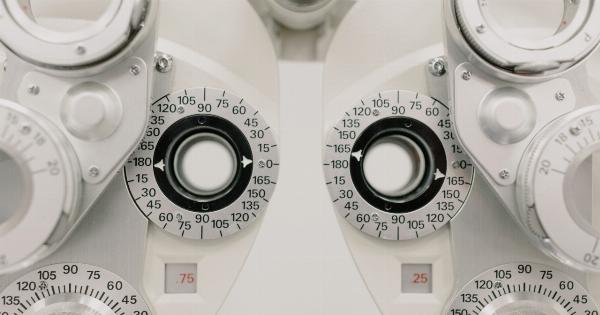Dementia is a progressive disorder that affects a person’s memory, cognitive abilities, and behavior. It is a devastating condition that affects nearly 50 million people worldwide.
While researchers are still exploring all the causes of dementia, it is known that lifestyle factors can have a significant impact on a person’s risk. There is much you can do to reduce your risk of developing dementia, and here are 30 keys to help you get started.
1. Exercise Regularly
Research has shown that physical activity can reduce a person’s risk of developing dementia. Moderate exercise, such as brisk walking or light jogging, for at least 30 minutes most days of the week is recommended.
Exercise helps to keep the blood flowing to the brain, which is essential for maintaining healthy brain function.
2. Eat A Healthy Diet
A healthy diet is essential for maintaining good health and reducing the risk of dementia. Eating foods high in fiber, low in saturated fats, and rich in vitamins and minerals can help reduce the risk.
Foods like fruits, vegetables, whole grains, and lean proteins should be a staple in your diet.
3. Stay Mentally Active
Mentally stimulating activities like playing games, reading, and doing puzzles can help keep your brain healthy. Engaging in activities that require critical thinking and problem-solving skills is particularly beneficial.
Also, learning new skills and taking on new challenges can help keep your mind active and reduce your risk of dementia.
4. Socialize Regularly
Staying socially active can help reduce your risk of dementia. Connecting with others and participating in social activities can help keep your mind engaged and reduce feelings of loneliness and isolation.
It is important to maintain strong social connections throughout your life.
5. Get Enough Sleep
Getting enough sleep is essential for maintaining good overall health and reducing the risk of dementia. Poor sleep patterns can disrupt the brain’s ability to process information, which can lead to memory and cognitive problems.
Aim for at least seven hours of sleep each night.
6. Limit Alcohol Consumption
Excessive alcohol consumption can increase the risk of dementia. Limit your intake to no more than one or two drinks per day, and avoid binge drinking. Additionally, avoid drinking alcohol before bedtime, as it can disrupt your sleep patterns.
7. Don’t Smoke
Smoking is harmful to your overall health and can increase the risk of developing dementia. Smoking can cause damage to the brain’s blood vessels, which can lead to cognitive decline. Quitting smoking is one of the best things you can do for your health.
8. Manage Stress
Chronic stress can have a negative impact on your overall health, including your brain health. Stress can cause inflammation in the brain, which can lead to cognitive decline.
Find ways to manage stress, like meditation or exercise, to reduce your risk of dementia.
9. Protect Your Head
Head injuries can increase the risk of developing dementia. Wear protective helmets when engaging in certain sports or activities that require them, and always buckle your seatbelt when driving.
Taking steps to protect your head can reduce your risk of head injuries.
10. Keep Your Brain Active
Engaging in mentally stimulating activities can help keep your brain healthy and reduce the risk of dementia. Activities like reading, writing, and playing games can help improve cognitive abilities and memory function.
Additionally, learning new skills and taking on new challenges can help keep your brain active and healthy.
11. Maintain A Healthy Weight
Being overweight or obese can increase the risk of developing dementia. Eating a healthy diet, exercising regularly, and maintaining a healthy weight can reduce the risk. Aim for a body mass index (BMI) of 25 or lower to reduce your risk.
12. Get Regular Health Checkups
Regular health checkups can help detect risk factors for dementia early. Conditions like high blood pressure, diabetes, and high cholesterol can increase the risk of developing dementia.
Early detection and treatment can help manage these conditions and reduce the risk of dementia.
13. Stay Hydrated
Staying hydrated is essential for maintaining optimal brain function. Drinking enough water can help improve memory and cognitive function. Aim to drink at least eight cups of water per day.
14. Protect Your Hearing
Hearing loss can increase the risk of dementia. Protect your hearing by wearing earplugs in noisy environments, avoiding loud music, and getting regular hearing checkups. Treating hearing loss early can help reduce the risk of developing dementia.
15. Reduce Your Sugar Intake
Consuming too much sugar can have a negative impact on your overall health, including your brain health. High sugar intake can cause inflammation in the brain, which can lead to cognitive decline.
Reduce your sugar intake by limiting your consumption of sugary foods and drinks.
16. Get Regular Exercise
Regular exercise is essential for maintaining good overall health and reducing the risk of dementia. Moderate exercise like brisk walking or light jogging for at least 30 minutes most days of the week is recommended.
Exercise helps to keep the blood flowing to the brain, which is essential for maintaining healthy brain function.
17. Stay Active
Regular physical activity is essential for maintaining good overall health and reducing the risk of dementia. Staying active throughout the day by taking short walks or using the stairs instead of the elevator can help keep your body and brain healthy.
18. Maintain Good Dental Health
Poor dental health can have a negative impact on your overall health, including your brain health. Brush and floss your teeth regularly and get regular dental checkups to maintain good oral health and reduce your risk of developing dementia.
19. Limit Your Salt Intake
Consuming too much salt can increase the risk of developing dementia. High salt intake can lead to high blood pressure, which is a risk factor for dementia.
Limit your salt intake by reducing the amount of processed foods and snacks you eat and using herbs and spices to flavor your food instead of relying on salt.
20. Drink Green Tea
Drinking green tea can help improve brain function and reduce the risk of developing dementia. Green tea is high in antioxidants and compounds that can help protect the brain from damage. Aim to drink at least two cups of green tea per day.
21. Reduce Your Caffeine Intake
Excessive caffeine intake can have a negative impact on your overall health, including your brain health. Limit your caffeine intake by reducing the amount of coffee and soda you drink each day, and opt for decaf alternatives when possible.
22. Get Enough Vitamin D
Vitamin D is essential for good overall health and may help reduce the risk of developing dementia. Get enough vitamin D by spending time in the sun, eating foods high in vitamin D like salmon and tuna, or taking vitamin D supplements.
23. Keep Your Brain Active Throughout The Day
Maintaining healthy brain function throughout the day can help reduce the risk of dementia. Engage in mentally stimulating activities throughout the day by reading, writing, and playing games.
Additionally, learn new skills and challenge yourself to keep your brain active and healthy.
24. Train Your Brain
Training your brain with exercises like crossword puzzles, memory games, and other brain teasers can help keep your brain healthy. These exercises help to improve cognitive abilities and memory function, which can reduce the risk of dementia.
25. Eat Foods Rich In Omega-3 Fatty Acids
Eating foods rich in omega-3 fatty acids, such as salmon, tuna, and other fatty fish, can help improve brain function and reduce the risk of dementia. Omega-3s are essential for good brain health and can help protect the brain from damage.
26. Don’t Overeat
Overeating can lead to weight gain and increase the risk of developing dementia. Practice mindful eating by paying attention to your body’s hunger signals and stopping eating when you feel full.
27. Manage Chronic Health Conditions
Chronic health conditions like high blood pressure, diabetes, and high cholesterol can increase the risk of developing dementia.
Manage these conditions through lifestyle changes like a healthy diet, regular exercise, and medication as prescribed by your doctor.
28. Take Care Of Your Mental Health
Mental health conditions like depression and anxiety can have a negative impact on brain health and increase the risk of developing dementia. Talk to your doctor or a mental health professional if you are struggling with your mental health.
29. Limit Your Exposure To Toxins
Toxins in the environment, such as pesticides and air pollution, can increase the risk of developing dementia.
Try to limit your exposure to these toxins by staying indoors on high pollution days and using natural pesticide alternatives whenever possible.
30. Challenge Yourself
Challenging yourself to learn new skills and take on new challenges can help keep your brain active and reduce the risk of dementia.
Try something new each day, like taking a different route to work or learning a new language, to keep your brain engaged and healthy.
Conclusion
Reducing your risk of dementia is all about maintaining a healthy lifestyle.
Eating a healthy diet, exercising regularly, staying mentally and physically active, and reducing your exposure to toxins can all help keep your brain healthy and reduce your risk of developing dementia. By incorporating these 30 keys into your daily life, you can take control of your brain health and reduce your risk of dementia.




























